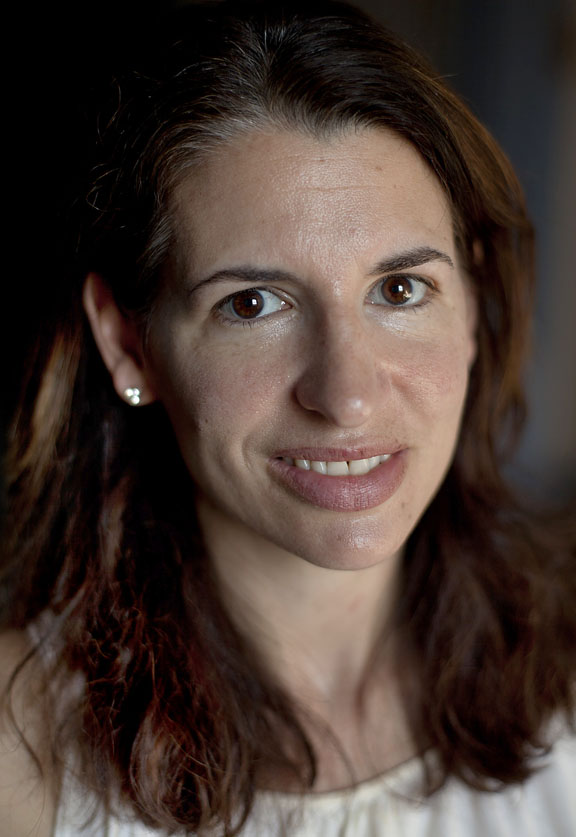Since the early 1980s and with renewed vigor since 9/11, the United States has been concerned about the goals and actions of Hezbollah, the Shia Muslim party in Lebanon. While its base is in the Middle East, there are reports that the group has expanded into Latin America, where there is a large Lebanese diaspora.
Today, the U.S. Congressional Committee on Homeland Security’s Subcommittee on Counterterrorism and Intelligence will hold a hearing titled “Hezbollah in Latin America – Implications for U.S. Homeland Security.” Melani Cammett, associate professor of political science and director of the Middle East Studies Program at Brown, is one of four witnesses who will testify about the current operations and the perceived threat of Hezbollah’s westward expansion. She spoke with Deborah Baum about Hezbollah’s alleged operations in the Western Hemisphere and whether they are likely to target the United States.

Credit: Mike Cohea/Brown University
What is Hezbollah is doing in Latin America?
I don’t have any concrete, verified information of their operations in Latin America, but there are reports that that they are engaging in counterfeiting, piracy, and drug trafficking, basically as fundraising operations. In particular, this is happening in regions that are relatively ungoverned, like the Tri-Border area (TBA), the intersection of Argentina, Paraguay, and Brazil. The estimates on how much they make from these operations and what precisely they are doing is broad, speculative, and vague. In addition to these fundraising operations, many people are now arguing that this is an actual or potential base for Hezbollah terrorist operations. The point of this hearing is to assess the extent and nature of their operations in Latin America and part of what I will be saying is that we don’t have concrete evidence of this.
Do you think this a potential base for Hezbollah’s terrorist operations?
It seems pretty clear that there are fundraising operations going on there, but the question of whether Hezbollah is preparing or launching terrorist operations is much less convincing to me.
As background, there’s an enormous Lebanese diaspora community in Latin America. Many are Christian and many are Shia. The problem with the argument that they’re launching terrorist operations there is that it imputes and assumes without firm evidence. Just because you have the presence of a large pocket of Lebanese Shia doesn’t mean they are necessarily actively supporting Hezbollah. And even if they are, it could be that they’re supporting Hezbollah’s charitable operations and not its terrorist operations. There is no direct “smoking gun” evidence. It’s quite circumstantial and based on a lot of assumptions. What I’m concerned about is that we take these disparate pieces of information and turn them into factual claims that then become the foundation for foreign policy. ... That is quite dangerous.
Tell me about Hezbollah’s charitable operations.
They are very extensive. Hezbollah runs over 40 clinics, hospitals and dispensaries throughout Lebanon and has mobile clinics. It also runs several school networks and many public health interventions, such as a vaccination program. This is all included in a book I’m currently writing, Compassionate Communalism?: Welfare and Sectarianism in Weak States.
Is there a big concern that Hezbollah is moving closer and closer to the United States?
That’s the concern of Homeland Security. I’m sure that there are many Hezbollah sympathizers resident in the United States already, so if they’ve wanted to launch terrorist operations by now, they could have already. Even so, I see no indication that that’s on their agenda. I see no indication that Hezbollah wants to engage in that sort of thing at this point. They’re quite different from Sunni extremist groups like Al-Qaeda ... extremely different. First of all, they are a Lebanese actor vested in Lebanese politics. They’re not interested in explosive acts of terrorism against civilians. They claim that they’re directing their military actions against governments and parties with which they are at war, specifically Israel. Regardless of what the United States thinks and what we in the West think, they don’t view what they’re doing as terrorist.
It seems that your message at the hearing will be one of caution for the United States not to overreact?
Yes, and recognizing that this is not an organization that can be equated with Al-Qaeda. This is quite a different organization and one that has evolved over time. It has political interests and charitable interests in addition to military interests and these put some constraints on their behavior.
